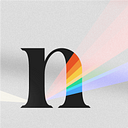We are addicted to social media. Let’s make the best of it.
We get a thrill out of new likes. We want to see our favorite author’s new piece first and read details on the latest catastrophe every day. Let’s deal with it.
When asked directly, most people state that they consume too much social media. And still, the consumption is continuously rising. Why is it such a guilty pleasure? And how can we make it more valuable?
Social media is designed to be fast food for the brain. — Sari Azout
The short answer is that we feel addicted to social media. We know we lose a sense of time, get emotional, and use it whenever we want to escape the task in front of us for a second (or 30 minutes).
The addiction stems from evolutionary conditioning (neighbors from the next cave are all dead because they ate that red mushroom) as well as from manipulative media practices (clickbait) and clever digital product design (more attention => more advertising $).
But this instant entertainment comes at a high cost, especially in the long term. Our attention span shrinks; we are constantly distracted and don’t have enough time to memorize, reflect and digest the information. It’s like filling a leaky bucket with a fire hose.
Dopamine hits from social media are very short. And soon, we need more. This makes us increasingly distractable. Every notification breaks our stream of thought. The short-term incentive of consuming information is much higher than the one of reflecting, connecting, and making sense of all the information. This is a big loss because it might result in understanding, knowledge, and wisdom. And who wouldn’t like to grow wise?
No man got ever wise by chance. — Aristoteles
Turning away from consuming social media is something few people want for the stated reasons. So let’s see how to live with it.
What’s the stake? What happens if we don’t tweak this at all? Well, then we spent a considerable part of our life on entertainment. Because information that doesn’t find any application is just that. That’s ok. However, many people see creativity and productivity at the core of their fulfillment. This particular breed tends to get unhappy when too much time is wasted.
How can we increase the chances that the information consumed has a longer-lasting effect on our lives? How can we make all these hours spent reading for entertainment compound and pay off later?
First of all, let’s be thankful for not remembering everything. A person remembering every piece of information would not be better off than a person remembering nothing.
Forgetting is good. But wouldn’t it be nice if we could choose what to remember and what not to remember? We usually do that by taking notes. So we have external memory, ease of mind, and full effect, right? At least in theory. Let’s look at how that works in practice.
Taking notes is often either too simplistic or too complicated. Let’s take the bookmarking feature on Twitter for example. It’s easy and feels nice. However, as soon as we save a Tweet, we lose sight of it. Let alone finding it at the right moment. Many dedicated note-taking apps imitate the downsides of physical notes (e.g. pages, folders, chronological orders). This separates our notes and hence our thinking.
But there are also more sophisticated systems: Apps that allow to link notes together and make connections without the constraints of the physical world. But this is tedious and feels like work, and — let’s be honest — we came for entertainment.
At Napkin, we build something combining the best of two worlds: Making it easy to choose what to remember and yet see connections to our previous notes and ideas. Collect ideas whether you read them digitally or on paper, and Napkin shows you links to previously collected notes automatically.
That way, we can embrace the entertainment. Still, whenever our delicate taste tells us that an idea is particularly interesting, or we come across a quote that resonates strongly with us, we collect it without further interruption of the fun part. The work? Napkin sees connections between new notes and previously collected ones. We don’t have to do much if we are not in the mood.
Napkin is a medium to think in, not to think about.
At Napkin, we explore a beautiful way to retrieve and review your ideas. First beta users have adopted this new behavior: Browsing their curated idea network instead of scrolling through a social feed for the 5th time that day. It’s inspiring to see notes collected by your former self instead of an algorithm optimized for advertisement. It is a joy to see it growing and explore connections between ideas that otherwise would have been lost.
The most exciting thing is that seeing these connections leads to new insights and ideas, and that gets you a dopamine kick as well, but a much more fulfilling one.
Try it yourself; join the beta: https://napkin.one
